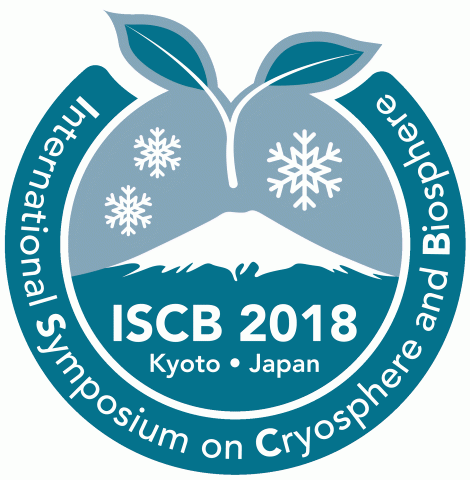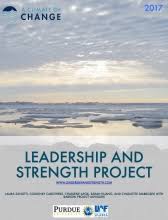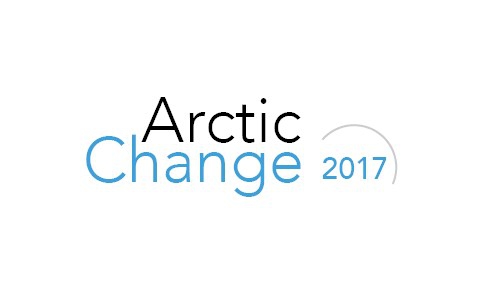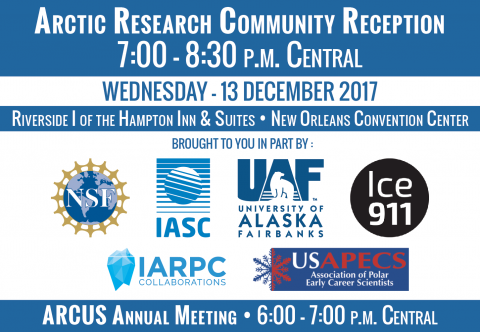In a Climate of Change: Co-producing knowledge and community-researcher relationships in the Leadership and Strength project in Utqiagvik, Alaska
ARCUS D.C. office at 1201 New York Avenue, NW Washington D.C. or online for virtual webinar
ARCUS Arctic Research Seminar Series
Arctic Research Consortium of the U.S. (ARCUS)
Date: Thursday, 30 November 2017 at 12:00-1:00 p.m. EST
Speaker: Courtney Carothers (University of Alaska Fairbanks) and Laura Zanotti (Purdue University)
Presentation Title: In a Climate of Change: Co-producing knowledge and community-researcher relationships in the Leadership and Strength project in Utqiagvik, Alaska
To register for the event, go to:
https://www.arcus.org/research-seminar-series
The Arctic Research Consortium of the U.S. (ARCUS) announces the next Arctic Research Seminar Series event featuring Courtney Carothers (University of Alaska Fairbanks) and Laura Zanotti (Purdue University). The event will be held in the ARCUS D.C. office at 1201 New York Avenue, NW Washington D.C. on Thursday, 30 November 2017 at 12:00-1:00 p.m. ET.
This seminar will also be available as a webinar live-stream for those unable to attend in person.
Registration is required for this event.
The ARCUS Arctic Research Seminar Series brings leading Arctic researchers to Washington, D.C. to share the latest findings and what they mean for decision-making. These seminars will be of interest to federal agency officials, congressional staff, non-governmental organizations, associations, and the public.
This seminar titled "In a Climate of Change: Co-producing knowledge and community-researcher relationships in the Leadership and Strength project in Utqiagvik, Alaska" will discuss best practices for social science environmental research programs that operate at the nexus of conservation, community-directed heritage efforts, community-based practice, and multi-institutional partnerships.
Courtney Carothers is an Associate Professor of Fisheries in the College of Fisheries and Ocean Sciences at the University of Alaska Fairbanks. She is an environmental anthropologist currently researching how fishery systems are being remade by enclosure and privatization processes and the total environment of change facing Arctic Indigenous communities. Her work explores human-environment relationships, cultural values, equity, and well-being. She has co-edited two books and published over 30 articles and book chapters on these topics. She currently serves on a number of boards and working groups, including: the SEARCH (Study of Environmental Arctic Change) Science Steering Committee, the North Pacific Research Board Science Panel, the Alaska Sustainable Salmon Fund Expert Panel, the State of Alaska's Salmon and People.
Laura Zanotti is an Associate Professor of Anthropology at Purdue University and holds a PhD from the University of Washington. She also has affiliations with the Center for the Environment, American Studies, Latin American and Latino Studies, and the Climate Change Research Center. Zanotti is an environmental anthropologist and interdisciplinary social scientist whose research program partners with communities to better understand how local, mostly rural, livelihoods and well-being can be sustained for future generations. Using a feminist political ecology framework, Zanotti maps out spatial inequalities and injustices experienced by resource-dependent communities and highlights local creativity in the context of acute change. In all of her work she stitches together insights from visual anthropology and engaged anthropology to create collaborative and meaningful projects. Her work has resulted in over ten published articles, an edited volume with Routledge, and several book chapters. Her book, Radical Territories in the Brazilian Amazon: the Kayapo’s Fight for Just Livelihoods, was recently published by the University of Arizona press. Zanotti’s research has been funded by the National Science Foundation, the Mellon Foundation, and Purdue University.
This event is a brown-bag lunch that will be held in the ARCUS D.C. office (1201 New York Avenue, NW Washington D.C. Fourth Floor). Cookies and beverages will be provided.
A live webinar is also available to those unable to attend in person. Instructions for accessing the event online will be sent to webinar registrants prior to the event.
For those of you on Twitter, we also invite you to join us in live-tweeting the event using the hashtag #arcuswebinar.
For more information and to register for the event, go to:
https://www.arcus.org/research-seminar-series.
For questions, contact:
Brit Myers
Email: brit [at] arcus.org




